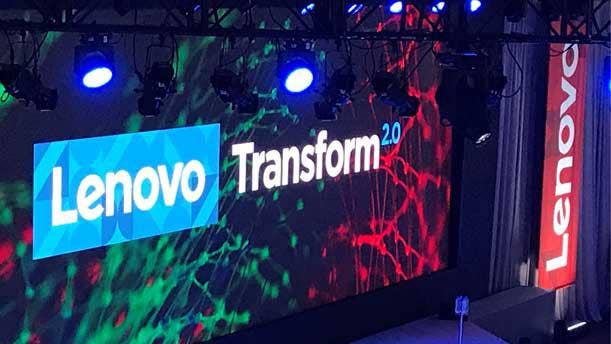Pivot3's Ron Nash On Beating Nutanix, IoT And Hyper-Converged Momentum

Ron Nash: 'It's A Really Fun Time To Be In Business'
Pivot3 CEO Ron Nash said his red-hot hyper-converged infrastructure company is besting the likes of Nutanix and larger competitors through scalability and better performance of applications.
"The reason we win against Nutanix and incumbents is performance. We run applications with better performance than our competitors. We also scale more linear than our competitors," said Nash in an interview with CRN.
The privately-held Austin, Texas-based vendor saw a whopping 95 percent increase in average deal sizes and a more than 50 percent revenue growth from Q1-Q3 2018 year-over-year. Nash spoke to CRN about Pivot3's hyper-converged technology differentiation, hybrid cloud vision, its new global partnership with Lenovo and advice to channel partners wanting to make the most money in 2019.

Why are customers buying Pivot3 versus your larger hyper-converged competitors?
People are not going to buy from us unless they see technology that performs better and gives them more benefits than the offers from the larger companies. If you look at the research analyst reports, we have been ranked quite well with Nutanix. We are the smaller, private, very entrepreneurial newer technology company because most of them are all giant companies. Nutanix at this point is a big, public company. The differentiator is we are the up-and-comer and have differential technology. A lot of CIOs think, 'I need something in hyper-converged.' If they're an HPE shop, they'll call HPE. If they're a Dell shop, they'll call Dell. They'll call their server vendor first saying, 'Who is the largest at this moment in the industry?' That would be Nutanix. So they'll get a Nutanix bid. Businesses then look around at research charts from Gartner, Forrester and IDC and see if there's some innovative company with better technology – that's when they pick up Pivot3. We find a lot of times we'll be bidding against Nutanix and whoever is the incumbent server provider for the customer. So three bids and we fight it out and win.

So what's Pivot3's technology differentiation compared to Nutanix and others?
The reason we win against Nutanix and incumbents is performance. We run applications with better performance than our competitors. We also scale more linear than our competitors. So if you have a high performance application, Pivot3 is the one to go to. If you have a huge application that needs massive scale, then Pivot3 is the one to go to. Our single largest site running is a platform with just under 300 nodes and 7 petabytes of data. That's a huge platform. Most of our competitors can't support something of that size. That's why we win. Whenever people test us versus competitors, we have a great win record. Our performance is better. In the last couple of years, we've really worked on our own product to where we gotten the performance up. We've worked a lot on software tools so we can have the easiest product to run multiple applications on.

What’s Pivot3's hybrid cloud strategy?
A global 2,000 company today is probably running between 20,000 and 40,000 applications because of virtualization and such. So you can't manually watch 20,000 applications and make sure they do the right thing. You have to have a policy engine and a level of automation that can do that for you -- that's what Pivot3 is providing. We're enabling our customers to get the most out of the cloud as they can. So the best economics and also the right performance for all those applications. … We see a whole plethora of metrics that you need to have a policy engine – that's why we deliver our Quality of Service and policy management engine. That engine is gradually expanding into the cloud where it can manage not only your application running on-site, it can also manage the applications running in various clouds. We have to help the CIO.

What does the future of a hybrid cloud world look like?
The average sizeable enterprise will be using multiple clouds in the future. The cloud service offerings are very price competitive. They're heading towards commoditization, but they'll still be different. Some of the clouds will be higher performance and higher price, some will be lower performance or lower price – there's lots of different ways to specialize. What you need is the ability to say, 'Let me look at all those cloud and decide which is the best for each of my applications? Let me look at what I'm running inside and see which things I could leave to the cloud.' There's reasons why to keep things on-premise and there's reasons why you could move it to the cloud. Pivot3's view is that we're going to be the provider of the software that helps you make that decision. It's not an easy decision to make manually without a policy engine that makes the decision for each application. You also need to know what the security level is and regulatory rules around this. For example, in Europe, there's pretty stringent regulations about certain data not being able to cross country boundaries. … We'll provide the automation and policy engine to get the most out of the cloud for customers.

Talk about your new global partnership with Lenovo? Why did Pivot3 pick Lenovo?
Lenovo has decided to specialize in Internet of Things applications. That's a strength of Pivot3. People used to talk about killer applications. The first killer app of Internet of Things is video, video surveillance and video security. That is rolled into smart city and smart campuses. What we see with Lenovo is going to a non-traditional source that's not necessarily coming out of the data center [which] has surveillance cameras, access controls, lighting controls – all these types of things that work together. A big trend in that area is the amount of imaging and analytics software that we're loading on our platform. Instead of just putting a camera in a parking lot, now our software records the tag numbers, everybody that goes in and out of the parking lot, the time stamps, etc. A simple imaging application is extraordinarily valuable data to have cataloged that way when a security issue occurs. They also are putting applications in the security side. … This smart cities, safe cities application area is something we've specialized in for a long period of time. Lenovo is making a serious commitment to being a source of those applications running on our platform. It's a great partnership and we are happy on what it's produced. It's a great channel for us and it gives us some extra geographic coverage that we don’t have.

If I'm a Pivot3 channel partner, what should I invest in to make the most money in 2019?
The security and IoT space – that's new territory for a channel partner. A channel partner should look at how broad of an offering you can support. A lot of channel partners for years have just focused on the data center, but there's a lot more IT out there than just in the data center. If you have very good expertise on the data center, networking, servers and storage – keep pushing that, but at the same time think about gearing up for some of these Internet of Things use cases. If you look at the storage data, we see video and IoT dwarfing the amount of data that's in a data center. That's a new territory for partners. So not only can a channel partner pick up our product and go into the data center and have the highest performance product there, but I want them to look at some of these new areas and expand. The broader and the larger our channel partners business is, the better we do. We're all going in the same direction to make things happen for customers.

Talk about your sales momentum heading into 2019?
Our average sale price has increased tremendously, and that doesn't mean I'm charging more for the exact same thing I did a quarter ago. It means customers are buying bigger platforms from me each time. A year ago, probably 95 percent of revenue was from customers buying a hyper-converged platform for one application. That has completely been upended. Now, the vast majority of our sales are for a platform that from the very start runs multiple applications on it. It's just inherently a larger buy than we would have in a single application. That's a big increase in the average deal size we have because 70 percent of the transactions we had in this last quarter was for platforms running multiple application. We gave partners the tools to manage multiple applications well and to have high performance which is accounting for our growth. We also see that 65 percent of our revenue this quarter is from our install base of customers expanding the platform they already own. They're installing our platform, seeing that it's working well and they're very satisfied with it saying, 'Let me move more applications to this platform.' And then they add more appliances and things like that. Those are the two big trends.
I'm proud of our team and our channel partners and what they're doing. It's a really fun time to be in business. When you live in tumultuous times, for people who are bright and aggressive, nothing could be better. Gosh are we enjoying it right now.